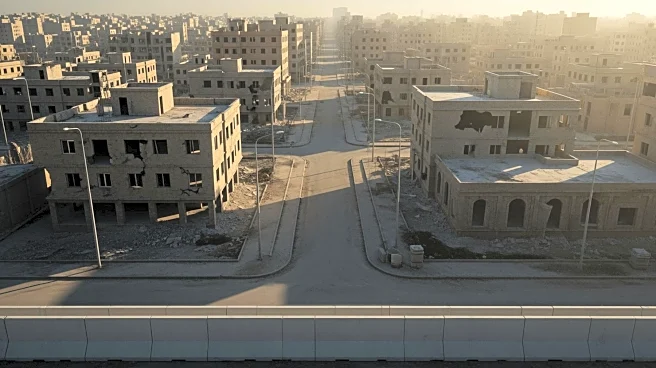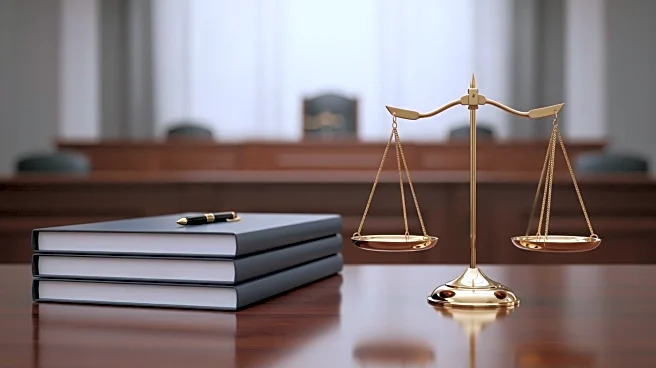What's Happening?
The United States is advancing a plan to establish zones of control in the Gaza Strip, aiming to create temporary housing for Palestinians in areas controlled by the Israel Defense Forces (IDF). This initiative,
reported by the Wall Street Journal, is part of a broader strategy to dismantle Hamas, which is a secondary objective under President Trump's 20-point peace plan. The plan involves marking Hamas-controlled areas in red and IDF-controlled zones in green, with the latter designated for the construction of 'alternative safe communities' for displaced Palestinians. Engineering teams have been dispatched to Gaza to plan the removal of rubble and unexploded ordnance, although construction has not yet begun. The first site is planned for Rafah, a city under IDF control, despite ongoing conflicts with Hamas operatives. The initiative faces international debate, with Arab states expressing concerns over the division of Gaza and potential displacement into Egypt's Sinai Peninsula.
Why It's Important?
This U.S.-backed plan is significant as it represents a shift in the approach to the Israeli-Palestinian conflict, focusing on creating stability in Gaza while reducing Hamas's influence. The proposal could impact regional dynamics, particularly with Egypt and other Arab states wary of changes that might affect their borders and internal security. The plan also highlights the challenges of reconstruction in conflict zones, as no donor countries have committed to funding projects in Hamas-controlled areas. The involvement of an international stabilization force, as proposed, could alter the security landscape in Gaza, potentially leading to a reduction in violence and a more stable environment for rebuilding efforts. However, the plan's success depends on political coordination and military developments, as well as the willingness of local and international actors to engage with the proposed governance structures.
What's Next?
The next steps involve further planning and coordination between the U.S., Israel, and regional actors to implement the proposed zones. The U.S. hopes that Hamas-controlled areas will diminish over time, allowing for an international stabilization force to assume security responsibilities. This force would work alongside a Palestinian police force, with the Trump administration's Board of Peace overseeing civil governance and reconstruction. However, the plan faces opposition from Hamas, which rejects the proposal as an infringement on Palestinian rights. The international community, particularly the UN Security Council, will play a crucial role in endorsing and potentially enforcing the plan. The resolution to disarm Hamas remains a contentious issue, with Hamas refusing to relinquish its weapons, posing a challenge for any stabilization efforts.









